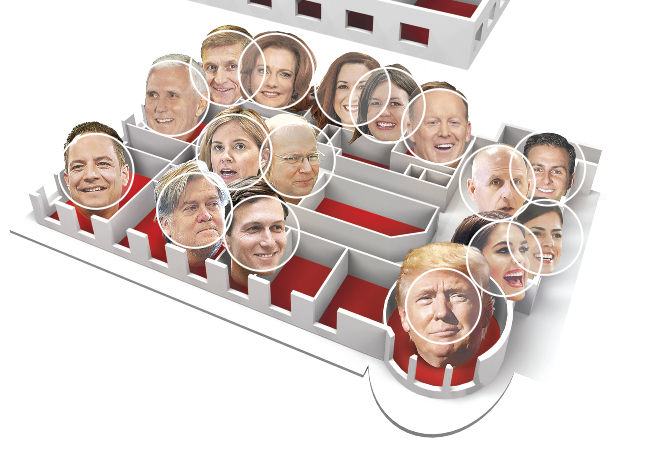Elon Musk, the billionaire entrepreneur and CEO of Tesla and SpaceX, has once again made headlines with his latest controversial statement: a call for the US government to “delete entire agencies.” Musk, known for his outspoken views on bureaucracy and government inefficiencies, argues that excessive regulation stifles innovation and economic growth. His remarks have sparked a heated debate on whether the government should undergo radical downsizing or if such actions would create chaos within the federal system.
The Context of Musk’s Statement
Musk’s call to dismantle federal agencies stems from his long-standing frustrations with regulatory bodies that he believes hinder progress. From NASA to the Securities and Exchange Commission (SEC) and the National Highway Traffic Safety Administration (NHTSA), Musk has frequently criticized government institutions for being overly bureaucratic, slow-moving, and hostile to technological advancements.
His comments align with a broader movement advocating for limited government, deregulation, and privatization of services traditionally managed by the state. The debate over federal overreach versus efficiency has been ongoing for decades, with some arguing that a streamlined government would enhance productivity, while others warn of the potential consequences of eliminating oversight.
Government Agencies in Musk’s Crosshairs
While Musk did not specify which agencies he would like to see abolished, his previous interactions with government entities provide insight into potential targets:
1. Securities and Exchange Commission (SEC)
Musk has had multiple run-ins with the SEC, most notably after his infamous 2018 tweet about taking Tesla private at $420 per share. The agency charged him with securities fraud, leading to a $20 million fine and his removal as Tesla chairman. Musk has often referred to the SEC as the “Shortseller Enrichment Commission,” accusing it of protecting Wall Street interests rather than ensuring fair markets.
2. National Highway Traffic Safety Administration (NHTSA)
Tesla’s self-driving technology has been under intense scrutiny from the NHTSA. The agency has launched multiple investigations into Tesla’s Autopilot and Full Self-Driving (FSD) features following reports of crashes. Musk has expressed frustration over what he sees as unnecessary interference, claiming that the agency is slowing the adoption of life-saving technologies.
3. Federal Aviation Administration (FAA)
SpaceX has also faced delays due to regulatory requirements imposed by the FAA. Musk has criticized the agency for slowing down the launch approval process, particularly in relation to Starship’s test flights. He argues that the FAA’s outdated regulations were designed for a past era and are incompatible with the rapid innovation required for space exploration.
4. Environmental Protection Agency (EPA) and National Labor Relations Board (NLRB)
Musk has had clashes with the EPA over environmental regulations impacting Tesla’s production facilities. Additionally, the NLRB has challenged Tesla over alleged union-busting activities, further fueling Musk’s skepticism toward regulatory bodies that, in his view, impose unnecessary restrictions on businesses.
The Case for Downsizing the Federal Government
Musk’s call to “delete entire agencies” resonates with many who believe that government overreach has stifled economic growth and innovation. Advocates for reducing the size of government argue that:
- Excessive regulations burden businesses: Overly complex regulatory frameworks make it difficult for startups and tech companies to compete, slowing down innovation.
- Bureaucracy leads to inefficiencies: Many government agencies are seen as outdated and redundant, consuming taxpayer dollars without delivering proportionate benefits.
- Privatization can improve services: Some argue that the private sector is better equipped to handle tasks traditionally managed by the government, leading to more efficiency and accountability.
- Federal agencies often overlap: Critics point out that multiple agencies perform similar functions, leading to duplication of efforts and wasted resources.
The Risks of Eliminating Federal Agencies
While Musk’s vision may appeal to free-market enthusiasts, completely eliminating federal agencies is a complex and potentially dangerous endeavor. Opponents of drastic cuts to the federal government raise several concerns:
- Lack of oversight could lead to corporate abuse: Agencies like the SEC and the Consumer Financial Protection Bureau (CFPB) exist to prevent fraud and protect consumers from unethical business practices.
- Safety regulations are essential: Organizations like the NHTSA ensure that vehicles meet safety standards, reducing accidents and saving lives.
- Environmental protections are necessary: Without agencies like the EPA, industrial pollution could go unchecked, leading to severe environmental and public health issues.
- Public services could deteriorate: Agencies provide critical services in education, healthcare, and infrastructure that the private sector may not prioritize if profit-driven.
The Political and Economic Implications
Musk’s statement aligns with a broader libertarian and conservative push for deregulation. With rising concerns about government spending, national debt, and bureaucratic inefficiencies, some lawmakers and business leaders may support Musk’s call for streamlining federal agencies.
However, government agencies are deeply embedded in the economic and political framework of the country. Any attempt to dismantle them would face significant resistance from legislators, unions, and advocacy groups. Additionally, the loss of government jobs and services could have widespread economic repercussions, potentially leading to unemployment spikes and instability in various industries.
The Path Forward: Reform vs. Elimination
Rather than outright deleting agencies, a more practical approach could be reforming them to improve efficiency and reduce bureaucracy. Potential solutions include:
- Modernizing regulations: Adapting regulatory frameworks to accommodate rapid technological advancements.
- Reducing redundancy: Consolidating overlapping agencies to eliminate inefficiencies.
- Enhancing accountability: Implementing stricter performance evaluations for federal agencies.
- Public-private partnerships: Encouraging collaboration between government and private enterprises to optimize services.
Conclusion
Elon Musk’s call for the US government to “delete entire agencies” is a bold and provocative stance that has reignited debates on the role of federal bureaucracy in the modern economy. While there are valid concerns about excessive regulation, the complete dismantling of federal agencies poses significant risks. A balanced approach that prioritizes regulatory reform over outright elimination may provide the best path forward, fostering both innovation and accountability.
As Musk continues to challenge conventional governance models, his ideas will undoubtedly shape discussions on the future of regulation, government efficiency, and the balance between state oversight and free-market principles.



